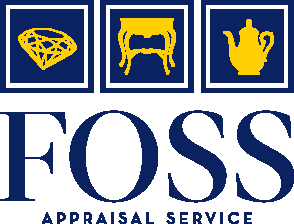How to distribute personal property from an estate
Advice for approaching and managing the personal property from an estate
After the loss of a loved one the job of figuring how to fairly and equitably distribute their estate begins and it can be a daunting task.
Over the last 20 years we have had thousands of conversations with executors and personal representatives on how to efficiently and effectively tackle this enormous task. I hope this guide can assist families of deceased loved ones navigate through the steps of distributing the estates personal property.
The loss of a family member can be devastating and the responsibility to effectively manage the identification and distribution of their personal property can seem like an impossible task. Depending on the size and value of the estate you may be asked to inventory and obtain an appraisal to determine the fair market value of the tangible personal property for either a State or Federal tax assessment.
Appraisal is the act or process of developing an opinion of value, estimating cost, or calculating the present worth of future earnings; a written or oral report documenting same; of or pertaining to appraising and related functions, e.g. appraisal practice, appraisal services. -ISA Core Course Manual 2018
One way to effectively and efficiently create an inventory and determine the value of the estate is to hire a professional appraisal company. A qualified appraiser will be able to create an accurate inventory that summarizes the contents of the estate. The resulting appraisal report can be an indispensable tool for managing the rest of the project. The appraisal report should contain accurate descriptions, clear photographs and appropriate values for the purpose of the appraisal project.
Fair market value is a value defined by a legal or regulatory jurisdiction and varies with individual jurisdictions. For federal uses in the U.S. such as estate and gift tax or charitable contributions, fair market value is the most probable price at which property would change hands between a willing buyer and a willing seller, neither being under any compulsion to buy or to sell, both having reasonable knowledge of all relevant facts, and with the sale being made to the public in the most relevant market taking into consideration the location of the property
Once the inventory is complete and the appraised value has been determined the work of equitably distributing the wanted items and efficiently liquidating the unwanted items can begin.
The fact of the matter is that every estate situation is different and the varying factors of family dynamics, sentimental attachment, honoring the decedents desires and practical logistics can create a stressful and difficult project for those involved.
Over the past 20 years, our experience with assisting estate representatives in the evaluation and distribution of personal property has helped us create this quick checklist of things to consider and one example of the order in which the process can be completed.
Get an appraisal: For many estates an appraisal can be as informal as a quick walk-through of the home with a qualified appraiser to identify items of value. We often recommend identifying items with a fair market value of greater than $50 or $100 to help separate the ‘wheat’ from the ‘chaff’ and ease the clients concerns about overlooking the valuable items in the estate. When the estate is taxable (as of 2020 the estate tax in Washington State applies to estates worth $2.193 million and up) a more formal inventory and appraisal of the personal property may be required. Our expert appraisers can help you with the appraisal of any size estate.
When you are working at the executor or personal representative (P.R.) of an estate you are often asked to manage the interests of the family and friends involved in the estate. The appraisal report can be a critical tool in the tracking of the personal property, distributing the information to those who need it (family members, attorneys, courts) and managing the information required of you as the P.R.
Once everyone has made their decisions about what they want to keep and you find yourself left with a houseful of stuff, now is a good time to speak with your appraiser. They will be able to recommend an estate sale company, an auction house or a consignment shop. Estate sales companies, consignment shops and auction houses can be utilized independently or in concert to effectively liquidate the contents of any size estate. Having an appraisal can help determine how to best handle this process. You can speak with your appraiser about which items would be best suited for an estate sale or consignment shop and which items would benefit from regional or national auction exposure.
Once the items have been sold or consigned or distributed there is most likely some leftovers. Some of these leftovers might warrant contacting a local charity organization and some might be destined for the landfill. Having worked with the appraiser as well as the estate sale company, consignment shop and/or auction house you can rest assured that you have met your obligations as a representative of the estate and done your best to realize the true value of the estate.
Our expert appraisers are available to speak with you about your estate and help you determine if an appraisal is needed. Feel free to give us a call (206-708-7393) or submit an inquiry form today.

